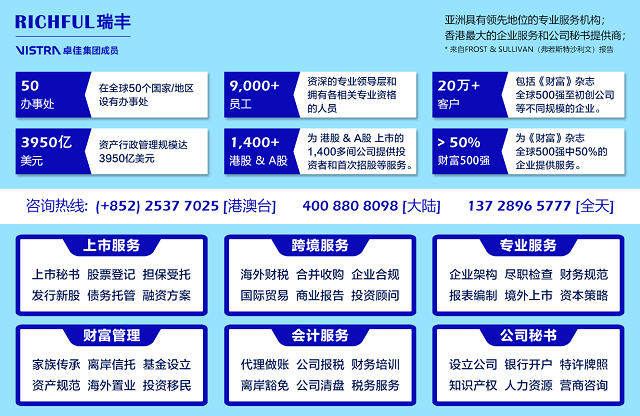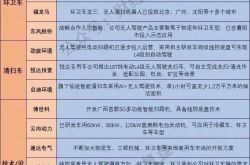How to apply for audit exemption for Singapore companies, detailed introduction to bookkeeping, audit and tax declaration for Singapore companies
![]() 09/20 2024
09/20 2024
![]() 799
799
Among the many countries in the world, Singapore stands out with its efficient and modern tax system, making it an ideal choice for businesses and individuals. It has successfully created a superior environment for economic growth. Many enterprises have gone overseas to Singapore to register companies and carry out business.
Audit requirements for Singapore companies
Is it necessary to complete audit requirements in the process of operating a Singapore company?

In Singapore, there are mainly two types of audits:
1. Voluntary audit: For some small businesses or start-ups, although it is not mandatory, voluntary audit can help companies identify financial risks and improve management efficiency.
2. Statutory audit: Depending on the size and nature of the company, all private limited companies generally need to undergo statutory audits. Such audits can ensure that companies comply with relevant laws and regulations.
To apply for audit exemption, you need to meet the requirements of a small company as defined in Singapore:
A small company in Singapore refers to a Singapore company with an annual turnover of less than SGD 5 million and fewer than 20 natural person shareholders (and no corporate shareholders). For such small companies, they can be exempted from the audit of their accounts and directly submit their accounting statements and tax returns for tax declaration in accordance with the audit exemption provisions of Chapters 205B and 205C of the Singapore Companies Act.
For non-small companies that do not meet the definition of small companies, they need to audit their accounts (just like Hong Kong companies, qualified accountants are also required to do this work), and submit the audit results, accounting books, and tax returns to the Inland Revenue Authority of Singapore (IRAS) for tax declaration.
Required information for audit and tax declaration of Singapore companies
1. Bank statements and water bills;
2. Sales documents: invoices, contracts;
3. Cost documents: invoices and contracts;
4. Expense documents: salaries, rent (lease contract or agreement must be provided), shipping costs, etc.;
5. Other relevant documents: two original copies of the articles of association, annual return form, business certificate, copy of the first secretary and director notice form D1, copies of all company change information (if any), fixed asset documents, investment-related documents, the first 3-5 purchase and sale invoices and corresponding receipts and payments documents for the following year of accounting, etc.
Audit process for Singapore companies
The audit process typically includes the following steps:
1. Preparation phase: The auditor will communicate with the company to understand its business status and financial processes, and determine the scope and schedule of the audit.
2. On-site audit: The auditor will review the company's account books, vouchers, and financial statements, and conduct interviews with relevant personnel to obtain necessary information.
3. Audit report: After the audit is completed, the auditor will prepare an audit report stating the audit results and recommendations, and propose improvement measures to the company.
The audit of a Singapore company takes at least 2-3 months, and the procedures may vary depending on the complexity of the company's finances. If the company has multiple layers of holding, consolidated financial statements, etc., the audit time may increase.
RICHFUL was founded in Hong Kong in 2000. Currently, its offices have spread to 13 major cities in Greater China, with over 200 professionals. Its services cover: Hong Kong and offshore company registration, corporate structure building, finance and accounting, tax and financial consulting, special license applications, listed company secretarial services, IPO and share registration, debt custody and trust, wealth management, overseas trusts and foundation establishment, human resources, payroll management, comprehensive business, corporate, and investor services.
RICHFUL is a member company of Vistra, a leading professional service provider for key businesses of corporate and private equity fund clients. As a leading provider of professional services for corporate and private equity fund clients, Vistra has offices in more than 50 countries/regions worldwide, employs more than 9,000 staff, serves over 200,000 entities, and manages assets of USD 395 billion. Its clients include 1,400 Hong Kong-listed companies, 50% of Fortune 500 companies, and 66% of PEI 300's leading private equity investment institutions worldwide.






